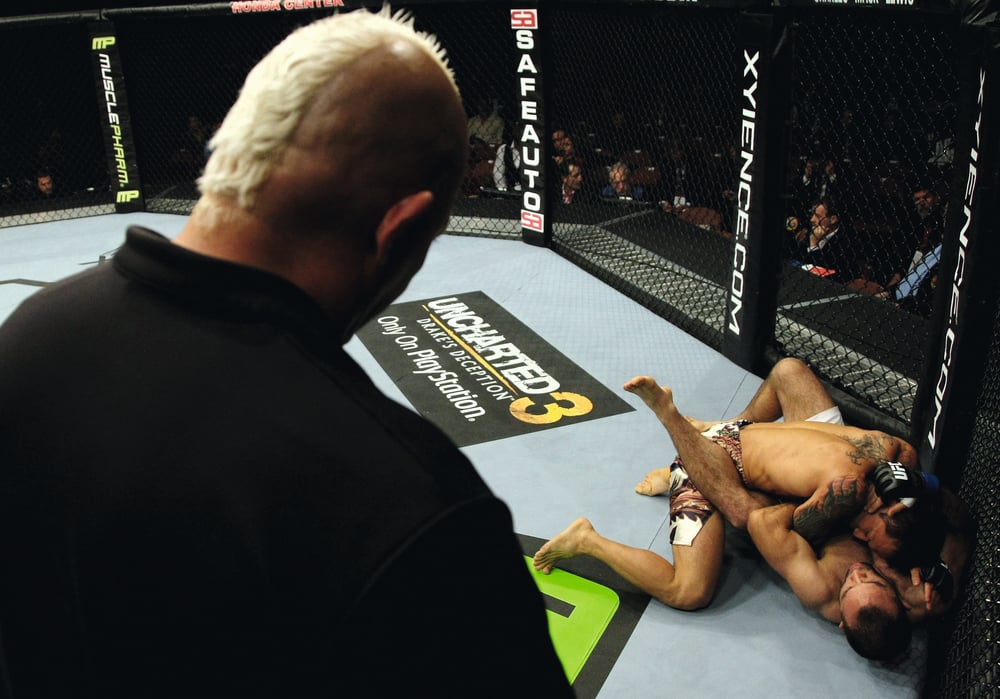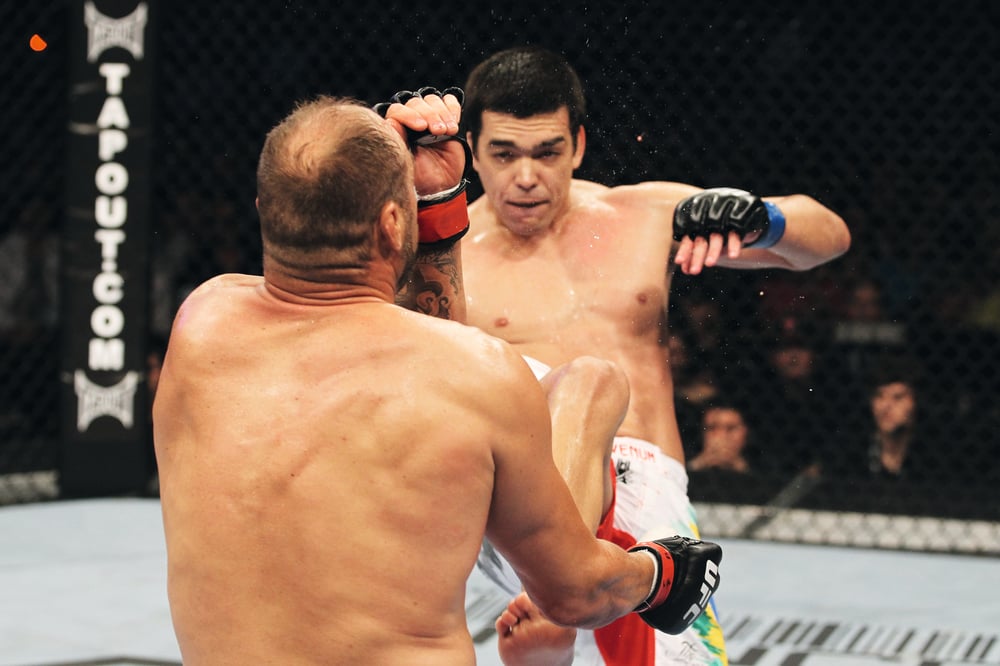
Issue 087
April 2012
Clear out your vices to become the best referee you can be
Mario Yamasaki
UFC referee
An MMA referee for 12 years, Mario has black belts in judo and BJJ and refereed the jiu-jitsu Pan-Am Games
A few columns ago I discussed several characteristics and attributes associated to being the best referee. This month I want to take the opposite approach. Historically religion has classified seven deadly sins that would lead mankind to its demise if these sins became adhered to in an individual’s life. In the same vein of thought, Mario’s ‘Seven Deadly Sins’ can also spell the demise of any official if they become commonplace. If you are an official you need to look at this list and perform a self-evaluation and learn to recognize these ‘sins.’
1 Complacency
I find this becomes a problem with referees who are more senior and have some experience under their belts. As a junior referee you have the mind-set that asks, ‘What could go wrong and how would I handle this situation?’ and try to solve problems before they happen. Now you find yourself, with more time and more shows under your belt, where nothing out of the ordinary has happened and you haven’t experienced any challenges with respect to officiating. As such, some referees go on autopilot and begin to go through the motions just walking around the cage, assuming nothing will happen as nothing has happened in the past. In other words these referees are just putting in time. Often times you develop an, ‘it won’t happen to me’ attitude and continue to work events without recognizing problems or preparing for problems in advance. Eventually this will lead to disaster because in MMA things move at a fast pace and, like the saying goes, ‘if you fail to prepare, you prepare to fail’.
2 Procrastination
Not recognizing you have deficiencies as an official is one thing, but you recognizing you have deficiencies and not doing anything about it is something different altogether. For example, one of the things my MMA officials training course specializes in (partly due to my background) is grappling and ground fighting. These are areas which I feel many officials still have issues with due to their limited involvement with sports such as wrestling, judo and BJJ. I frequently inform those lacking in this area that they need to improve their ability to recognize the many grappling techniques associated with MMA in order to become a better referee or judge and I also give them the steps they need to take to help them improve. In many cases this is as far as it goes. The answer as to why this happens usually involves procrastination. They realize they have to improve and they know the steps they need to work on to improve, but they just put it off. Life gets in the way, your job as an official takes a back seat and you just keep putting off the skills you know you need to work on.
3 Poor Positioning
Position is everything for a referee. If you are in a poor position you won’t be able to observe your fighters. Additionally you may be out of place to react in an efficient manner. Positioning has to do with understanding the sport of MMA and all the components. Referees sometimes stand too far back when fighters go to the ground, or get too close to the action when fighters are standing. Additionally you have to understand the nature of the application of submissions and be able to stand where you can best observe the submission and the key signs when a fighter has succumbed to the submission. Poor positioning might be down to a lack of familiarity with the techniques and not knowing where to stand to observe the situation, or it might simply be due to the referee lacking confidence and being afraid to get too close to the action. Establishing a proper position when refereeing MMA is vital.
4 Being out of Shape
You might have the cognitive skills to recognize everything that is happening in the cage and identify every submission, sweep, reversal or takedown. However, that won’t entirely help you if you are panting and gasping for air and cannot react physically to what you just observed. Fighters are constantly moving and a referee must move in conjunction with the fighters. A secondary consideration is that you are wearing the uniform of the athletic commission and so you want to have the appearance of being professional at all times.
5 Tiredness
Lack of sleep affects the brain. A referee has to interpret and make decision in micro seconds. The mind navigates the body. You might be in the best physical shape, but if you are fatigued and tired during an event you will not be able to make the right decisions. Sleep deprivation has been associated with many of the significant accidents that have made the news over the last several years. Medical science has proven that a lack of sleep affects your ability to focus, your moods, and your cognitive skills. In other words, your performance as an official is going to suffer if you are tired. A referee is always observing and interpreting information and making an analysis on that information. This is being done in real time. What that means is while the fans and viewers have the luxury of multiple camera angles and instant replays a referee must evaluate the situation as it unfolds.
6 Failure to Debrief
Debriefing is the discussion that takes place immediately after the event between the athletic commission and all the staff assigned to work the event. I know some referees and commissions who bypass this step entirely because usually at the end of the night everyone has put in a long day and they just want to go home. Sometimes this step is also bypassed as some commissions do not have the skills and knowledge to effectively conduct a proper debriefing. However, this is generally where critical learning can take place and this is where you can improve your performance as an official. After each event it is imperative to debrief and go over what you did poorly and what you can improve upon. You also should discuss what you did properly so that others can use that as an example. Debriefing is usually the most effective immediately after the event when everyone’s memory is fresh.
7 Skill Retention
The sport is evolving and growing and so you need to constantly hone and refine your skills. You have to watch videos of other events and other referees when you are not working. You have to pay attention to what tactics and techniques fighters are using and modifying so that you are prepared for them. No one could have predicted that the crane front kick which Anderson Silva used to knockout Vitor Belfort would start to show up in other fighters’ arsenals such as Lyoto Machida’s when he beat Randy Couture. Now it is something to watch out for. If a technique works then a fighter will use it. Additionally, you need to be practicing your skills, cage mechanics, movement and positioning especially in times when you are not working. Go to gyms and referee sparring sessions to keep your skills sharp and focused. Police SWAT teams, fighter pilots, and firefighters are always practicing their skills during down times and the same should hold true for MMA officials.












